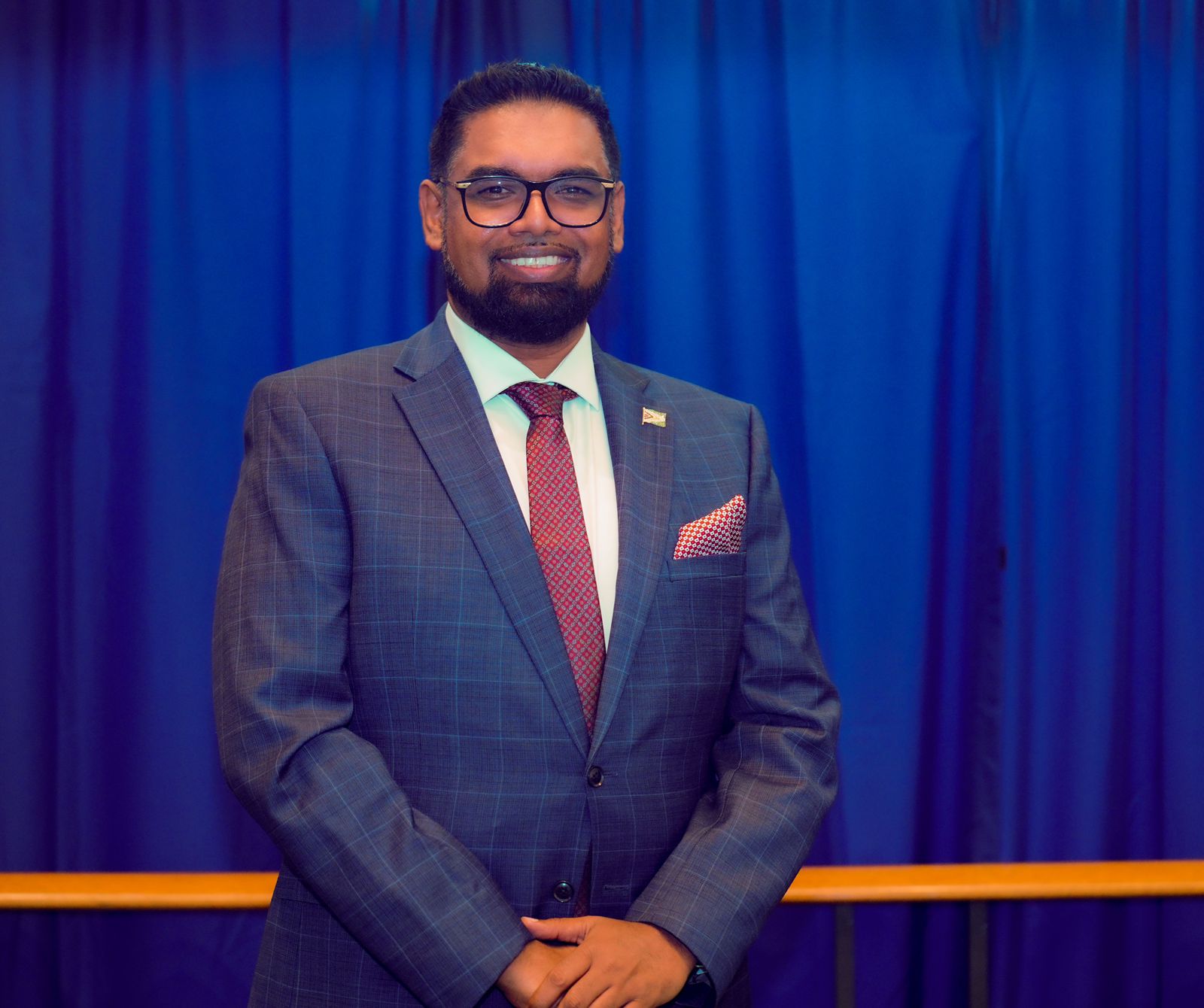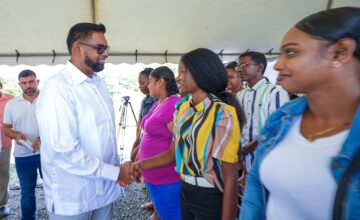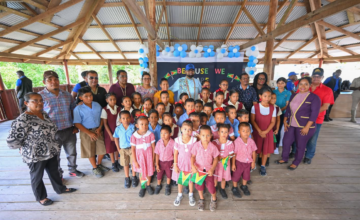
Calls it a manifestation of actionable South-South cooperation
Georgetown, Guyana—(November 08, 2022) His Excellency Dr Irfaan Ali said that the launch of the Pharmaceutical Equity for Global Public Health is a manifestation of actionable South-South cooperation.
He said that it is a model through which “the countries of the South can assume greater responsibility for responding to health and other challenges”.
The Head of State made this assertion earlier today at State House as he delivered remarks virtually on the margins of COP 27 to discuss the furthering of pharmaceutical equity for global public health with President of the European Commission Ursula von der Leyen, Chair of the African Union Commission Moussa Faki Mahamat, and Director-General of the World Health Organisation (WHO) Dr Tedros Adhanom Ghebreyesus. The panel also included the Prime Minister of Barbados, Mia Amor Mottley, and the President of the Republic of Rwanda, Paul Kagame.
President Ali said that if it is truly believed that public health is a global public good, then all should be compelled to accept that suitable healthcare should be available to all people, regardless of which part of the world they reside or the social classes to which they belong.
Realising the ideal of public health as a global public good, he continued, requires greater equality in access to health facilities, technologies, treatments, preventions, and medicines.
UNEVEN GLOBAL HEALTH LANDSCAPE
“Unfortunately, the global health landscape is far from even. Health disparities between developed and developing and high-income and low-income countries are striking.”
He outlined striking statistics that point to the disparity, including the fact that 61 babies die for every 1,000 live births in developing countries, compared to eight per every 1,000 live births in developed countries. He added that more than one-third of all child deaths under the age of five occur in developing countries; less than 25% of persons in developing countries live to the age of 70. Additionally, he noted that in 2021, 69% of all new tuberculosis cases occurred in South East Asia and Africa; 70% of the 10 million cancer deaths in 2020 were in low- and middle-income countries and that most of the world’s leading pharmaceutical companies originate in the developed world.
“With prevention and the right treatment, most of the deaths in developing countries can be avoided. Yet, access by these countries to life-saving medicines is being constrained by patent monopolies and overpriced medicines.”
The fault lines of global health disparities, President Ali stressed, were “exemplified starkly” during the height of the Covid-19 pandemic, when “the rich developed countries placed orders for and stockpiled vaccines in excess of their needs while millions in poor developing countries remained unprotected.”
According to the World Health Organization, in March of this year, 74% of the population in high-income countries had been vaccinated, as compared to a mere 12% in low-income countries.
“As I have said before, the developing world must never again find itself waiting in line for life-saving treatments, including vaccines. We must never again, in the midst of any future global health crisis, be forced into extreme reliance on the rich countries for life-saving vaccines and medicines.”
STRENGTH IN SOUTH-SOUTH COOPERATION
On this note, Dr Ali emphasised that the global South is far from helpless. In fact, the region has the knowledge and the capabilities to develop medicines to prevent and treat health threats.
“The Republic of Cuba has developed its own Covid-19 vaccines. I have called before for South-South cooperation to allow us to combine our experience and expertise and mobilise the necessary financial resources to address our health threats.
The President assured of Guyana’s support for the Pharmaceutical Equity for Global Public Health initiative and to improve global public health equity.
This meeting marks the initiation of open-ended pre-contractual proceedings – initially between Barbados, Guyana, and Rwanda with an invitation to interested countries in the LAC Region and in Africa to join with the common aim to boost pharmaceutical equity in Latin America, the Caribbean and Africa.


